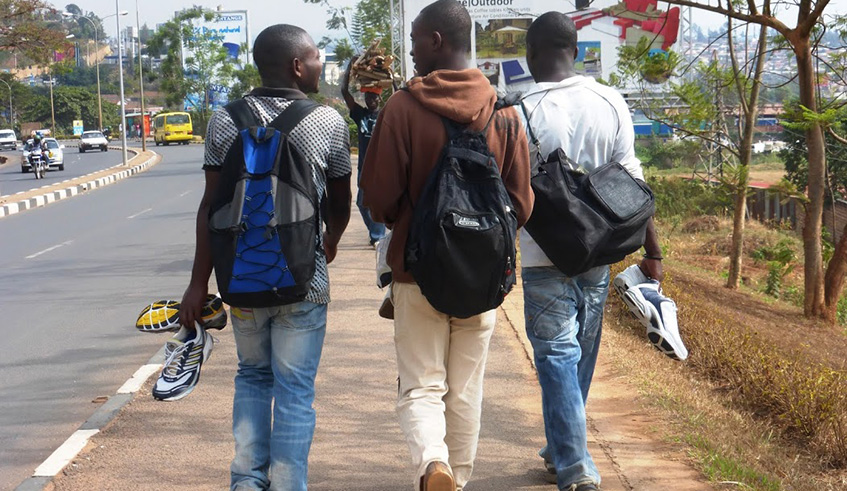Authorities came up with a proposal to build markets around Kigali and give the hawkers free stalls on top of giving them start-up capital in the form of a revolving fund.


In most countries in the region, hawkers are a real menace to public order in the evening as people are rushing home from work.
Entire pavements become markets and there is hardly any room for pedestrians, especially around bus stops. Once the human traffic ebbs and the hawkers pack their wares, they leave behind mounds of garbage.
For cities with poor garbage management, it is pure nightmare as the garbage and plastic bags clog water canals and cause floods in the rainy season.
RELATED: How effective has the ban on hawkers been?
Kigali went through all of the above and had to come up with sustainable solutions, one that would not impoverish hawkers but would keep the city clean and orderly.
The key decision was to ban plastic bags used by hawkers to pack their fruits and vegetables. But the desired results were not immediate and there were regular running battles between the vendors and law enforcement.
The city slapped a Rwf10,000 fine on the spot for both the hawker and the buyer, but punitive measures alone were not enough. Authorities came up with a proposal to build markets around Kigali and give the hawkers free stalls on top of giving them start-up capital in the form of a revolving fund.
In the last four years, eight new markets have been built for the hawkers who had been reluctant to get off the streets. Others were rented from individuals and used to host the former street vendors, and today, our streets are not only clean and orderly, but the former hawkers’ livelihood is also now assured.
This is a win-win solution and city authorities and other stakeholders deserve to be acclaimed.
editorial@newtimes.co.rw


